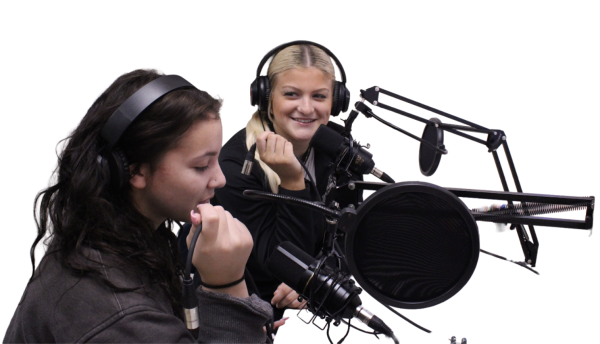Lowering our voices enhances purposes
I always felt the need to argue, and my opinion, or personality, was essential to the topic. While I still condone speaking out during political and moral disagreements, I also realize there is wisdom in valuing silence: sometimes, it’s okay to stop talking. Loudly exclaiming your opinion has become such a normal part of society that we forget why we’re so upset in the first place. As a result, whispering is often a form of misunderstood speech. Too often, people look down on those who speak softly, and if they stay safe from being criticized for mumbling, “Speak up” is the comment to follow. I believe that whispering can enhance how we interact with those around us and lead to more insightful and meaningful conversations.
Martin Luther King, Mahatma Gandhi and Greta Thunburg are a few of the more recognizable speakers when we think of influential speeches. Through their examples, it may be hard to accept that whispering can have the effect you want it to have. After all, these people used their powerful, raised voices to emphasize their messages. While whispering sounds inconvenient and maybe even debilitating, there are plenty of substitutes for purposeful speech, believe it or not, without obnoxious commentary or volume.
With a quick Google search, many results showcase that the key to powerful speech lies not in how loud you are but in the techniques you utilize. According to an article from the Harvard Business Review, “What you say and how you say it are equally important.” Yet, after sifting through their tips and tricks, it became clear that raising your voice was never a principal point. They favored eye contact, open posture and hand gestures. Eliminating filler text can ensure your audience does not grow irritated or view you as less confident, as well as varying the pace of your speech – most of us can recall the dramatic pauses before a speaker delivers their final point. Screaming and yelling at an audience usually should not be the first approach, nor is it often the most effective. Yet we still do so in debates with friends or colleagues.
Take a moment to consider how you would react if someone were aggressively expressing an opposite opinion to your own. You might get defensive and probably would not change your mind.
There is no such thing as listening while talking – unless, of course, you think you’re gaining something from listening to your own voice. In 2018, a National Library of Medicine study examined how sharing attitudes with a good listener shifted a speaker’s attitude. It predicted and later worked through a series of five experiments, revealing that high-quality listening helps with the speaker’s social anxiety and self-awareness – something many are unaware they lack. Learning through listening is a far better opportunity than arguing who is right, because believe it or not, you might not always be on the correct side of things. Whispering could even save someone their dignity: you can softly whisper your idiotic opinion instead of shouting it to everyone in the restaurant.
The chance to listen vanishes almost instantly when someone raises their voice in a disagreement. As the blood heats and heartbeats rise, both parties become defensive. If people were to speak in a whisper, we would be more prone to listen to one another instead of relentlessly defending our opinion. This miracle could open roads to new perspectives, innovation and newfound collaboration. What kind of life would we be living if we never stopped to think about someone else’s perspective? A riveting and comforting one, that’s for sure.
Realizing that I had unknowingly become commonly agitated at raised voices prompted me to understand what was truly irritating about them. A 2018 National Library of Medicine study found that due to rising public interest in ASMR, experiencers often used videos to promote relaxation and sleep. ASMR can reduce your heart rate and increase skin conductance levels. Findings indicated that it could be reliable and entail therapeutic benefits for mental and physical health.
As a final contribution, I would like to point out a personal pet peeve that may be more than just isolated to me. Whether I am sitting at a desk for school or work, eating out at a restaurant or just enjoying a walk, the unfortunate reality is that I do not care to listen to the loud complaints of a stranger. As a student myself, hearing someone loudly project their voice to complain that their perceived stupidity is a factor behind the A- they achieved on their test does not seem like a good utilization of my ears — and it could be potentially harmful to the students in that room who worked hard to earn their B.
Coaching, known for its tactics of yelling to motivate players, could yield the same results with a softer approach. Being yelled at by a coach could distract players from playing their best and make lessons harder to learn if they focus on their coach’s disappointment. If coaches were to whisper at their players, student-athletes could focus more on the game. Normalizing speaking softly and not forcing our personality and associated expectations and perspectives on others could normalize a superior functioning society.
If society could embrace a more practical use of our words, we could eventually transition into louder speech again. However, for the sake of peace, deciding to lower our voices could raise their purpose.

Name: Ashley Vanderhoff
Position: Design and Ads & Business Executive
Graduation Year: 2023
A Few Sentences...






